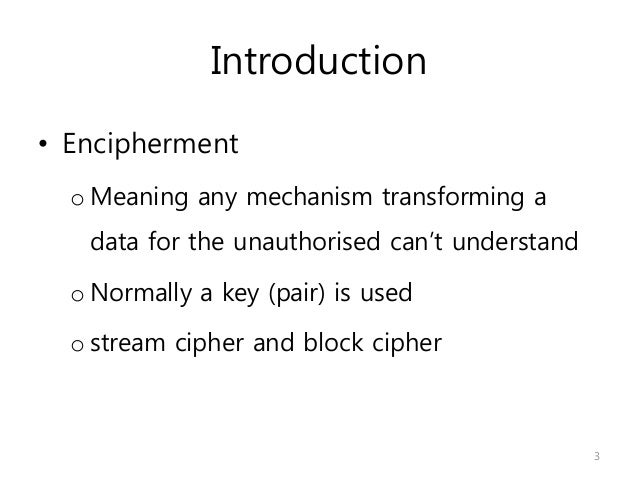- Aes 256 Key Iv Generator
- Aes Key Iv Generator
- Aes Key And Iv Generator Download
- Aes Key And Iv Generator C#
- Aes Key And Iv Generators
AES Decryption using the MachineKey DecryptionKey
Dec 04, 2007 11:02 PM|tom.hundley|LINK
- Cpsc 370 Aes Key Generator For Sale; Cpsc 370 Aes Key Generator Manual; A device or program used to generate keys is called a key generator or keygen. Generation in cryptography edit String encryptedMessage = Helper.ByteArrayToString(CryptoHelper.EncryptStringToBytesAes(plainMessage, aes.Key, aes.IV)); // Must always use a random IV, meaning.
- With AES-CBC you usually need a random IV. However, in the case where you use each key only once, like when using password-based encryption with random salts for each file, you can usea fixed, zero IV.
- AES algorithm requires two different parameters for encryption, a key and an initialization vector (IV). I see three choices for creating the key file: Embed hard-coded IV within the application and save the key in the key file. Embed hard-coded key within the application and save the IV in the key file.
- Minneapolis wedding and portrait photography.
For instance, a counter is less likely to repeat (the chances of an IV colliding are relatively high due to the birthday problem). Do make sure that you are using a well seeded cryptographically secure random number generator. We want to store key and IV in Database and retrieve it for encryption/decryption. The way AES-GCM is initialized is stupid: You encrypt an all-zero block with your AES key (in ECB mode) and store it in a variable called. This value is used for authenticating all messages authenticated under that AES key, rather than for a given (key, nonce) pair. Diagram describing Galois/Counter Mode, taken from Wikipedia. AES-CBC (cipher block chaining) mode is one of the most used symmetric encryption algorithms. The data size must be nonzero and multiple of 16 bytes, which is the size of a “block”. The data is split into 16-byte blocks before encryption or decryption is started, then the operation is performed on each of the blocks.
Hi. I'm trying to figure out how to use AES encyption and decryption using the DecryptionKey in the MachineKey. I think I'm on the right track, but I don't know how to get a proper Key and IV from the DecryptionKey to set in my Rijndael manager.
Here is my web config:
<machineKeyvalidationKey='3EF4FE4BD3F9A1CA4F293F521B8E3F492ED855FA4029511934BF221FCE80AE6A13252ED080EE6423A69EC96A3AB6E8F6E3A1B90AE70C97CC3C33FD4E51041879'decryption='AES'decryptionKey='D2B115C0460D0DA0F84A4DC2713435A3B4C49C734E1D7E33'validation='AES'/>
My 'Rijndael Manager' is below. Here is what I'm stuck on right now. I know this Manager class works great if I create a seperate Key and IV in my webconfig that looks like this (actually those are 256 bit not 128 as the class below shows).
<addkey='Key'value='JQZqQLLTQ+yV3jfvwPK7PXlJEiKQqDA9bld/ePSyx+E='/>
<addkey='IV'value='P1I/4wNHVbpM4/o7DwuCi83YAfOLpBwJyPBVkvRX7vs='/>
BUT, the problem with this is if I do that, I'm using two different keys for encryption- one for Membership and one with my own Rijnadael manager. I want to use the same shared DecrytpionKey in the MachineConfig for ALL of my encryption.
This is what I normally do:
RijndaelManagedManagercipherManager = new RijndaelManagedManager(Convert.FromBase64String(ConfigurationManager.AppSettings.Get('Key')), Convert.FromBase64String(ConfigurationManager.AppSettings.Get('IV')));
This is what I WANT to do, using the DecryptKey.
RijndaelManagedManager cipherManager = newRijndaelManagedManager();
cipherManager.IV = ??? Get me from the Machine Key Please!
cipherManager.Key = ??? Get e from the Machine Key Please!
THANK YOU in advance for any help you can give me.
--Tom
____________________________________________________________________
using System.Security.Cryptography;
namespace DOR.Security.Cryptography
///<summary>/// Manages simple encrypt and decrypt functions using the RijndaelManaged provider
///</summary>
publicclassRijndaelManagedManager
{
RijndaelManaged _cipher = null;///<summary>
/// Empty constructor
///</summary>
public RijndaelManagedManager(){
_cipher = InitCipher();
}
///<summary>
/// Pass key and iv to use in operations
///</summary>
///<param name='key'></param>
///<param name='iv'></param>
public RijndaelManagedManager(byte[] key, byte[] iv){
_cipher = InitCipher(key, iv);
}
///<summary>
///
///</summary>
publicbyte[] Key{
get { returnAes 256 Key Iv Generator
_cipher.Key; }set { _cipher.Key = value; }}
///<summary>
///
///</summary>
publicbyte[] IV{
get { return _cipher.IV; }set { _cipher.IV = value; }}
///<summary>
/// Encrypt the passed byte array
///</summary>
///<param name='plainText'></param>
///<returns></returns>
publicbyte[] Encrypt(byte[] plainText){
ICryptoTransform transform = _cipher.CreateEncryptor();byte[] cipherText = transform.TransformFinalBlock(plainText, 0, plainText.Length);
return cipherText;}

///<summary>
/// Decrypt the passed byte array
///</summary>
///<param name='cipherText'></param>
///<returns></returns>
publicAes Key Iv Generator
byte[] Decrypt(byteAes Key And Iv Generator Download
[] cipherText){
ICryptoTransform transform = _cipher.CreateDecryptor();byte[] plainText = transform.TransformFinalBlock(cipherText, 0, cipherText.Length);
return plainText;}
privateRijndaelManaged InitCipher(){
RijndaelManaged cipher = CreateCipher();cipher.GenerateKey();
cipher.GenerateIV();
return cipher;}
privateRijndaelManaged InitCipher(byte[] key, byte[] iv){
RijndaelManaged cipher = CreateCipher();cipher.Key = key;
cipher.IV = iv;
return cipher;}
privateRijndaelManaged CreateCipher(){
RijndaelManaged cipher = newRijndaelManaged();cipher.KeySize = 128;
cipher.BlockSize = 128;
cipher.Mode = CipherMode.CBC;Aes Key And Iv Generator C#
cipher.Padding = PaddingMode.ISO10126;
return cipher;}
}
Aes Key And Iv Generators
}
Comments are closed.